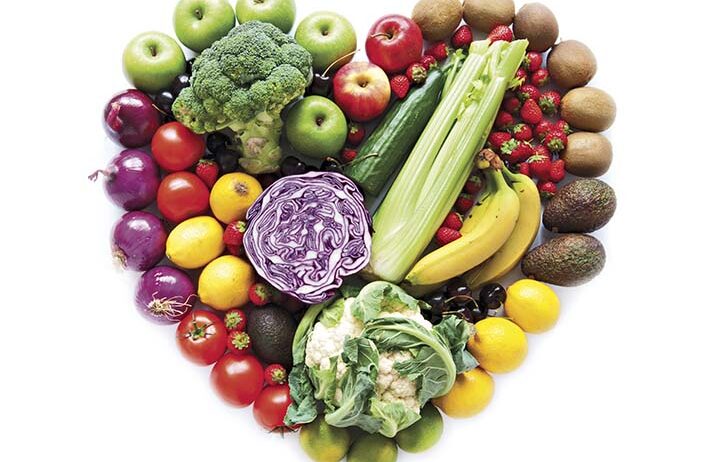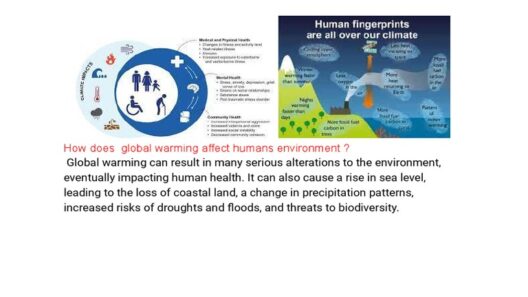In the ongoing discourse surrounding climate change, one omnipresent factor often rises to the surface: the consumption of meat. While the connection between dietary choices and environmental consequences may seem apparent, the intricacies of this relationship merit deeper inquiry. As societies evolve and awareness of climate issues burgeons, an increasingly critical examination of meat’s climate footprint reveals not just a necessity for ethical eating, but also the profound implications of our consumption patterns.
To commingle the concepts of nutrition and environmental sustainability, one must first appreciate the scale of meat production and its associated greenhouse gas emissions. Livestock farming emerges as a significant contributor to global warming, responsible for approximately 14.5% of all anthropogenic greenhouse gases, according to various studies. The reasons behind this staggering statistic warrant exploration; they encapsulate a blend of agriculturally rooted practices, inefficient resource allocation, and the staggering caloric conversion inefficiencies endemic to meat production.
Consider the vast expanse of land required for grazing livestock. Traditional livestock farming necessitates extensive land use—forests are often cleared to create pastures, leading to a loss of biodiversity and the release of stored carbon in trees and soil. Furthermore, the clear-cutting of tropical rainforests to accommodate beef production exemplifies a tragic irony: in prioritizing short-term agricultural output, we detract from the long-term health of our planet. This man-made deforestation creates a cascading effect on climate dynamics, contributing to habitat destruction while exacerbating CO2 levels in the atmosphere.
Additionally, the relationship between livestock and methane production is particularly acute. Ruminant animals, such as cows and sheep, produce methane during digestion—a greenhouse gas that is over 25 times more potent than carbon dioxide over a 100-year period. The enteric fermentation process, wherein microbes break down food in the stomach, contributes significantly to overall emissions, making these animals one of the largest agricultural sources of methane. Efforts to mitigate these emissions are underway, ranging from feed additives to changed management practices. Yet, the sheer scale of production makes comprehensive changes daunting.
Water usage compounds the environmental ramifications of meat consumption, presenting further complications. Producing a pound of beef necessitates an eye-popping 1,800 gallons of water on average, factoring in everything from hydration to feed crop irrigation. In contrast, plant-based foods generally require far less water, offering a perhaps more sustainable option for dietary practices. As climatic shifts spur increasingly frequent droughts and water scarcity, the emphasis on meat consumption reveals a troubling paradox: societies reliant on water-intensive animal agriculture tether themselves to a precarious resource strategy, threatening future food security.
Equally deserving of scrutiny is the sheer volume of food waste that emerges from meat production practices. The inefficiency of converting feed into animal protein contributes to an alarming statistic: globally, approximately one-third of all food produced is wasted. This includes vast amounts of feed that could otherwise sustain direct human consumption. The misallocation transcends mere moral dilemmas; it magnifies the agricultural impact on land and resources, further intensifying the strain on our ecosystems.
There exists a notable psychological and cultural component to dietary choices, particularly when it involves meat. The widespread enjoyment of meat is supported by historical, economic, and social frameworks that celebrate its consumption. The allure of certain diets, such as the Mediterranean, optimally blends plant-based foods with moderate amounts of meat, suggesting a potential pathway towards enhanced sustainability without complete dietary overhaul. Under the growing umbrella of flexitarianism, individuals may find a manageable compromise that minimizes their meat consumption without relinquishing the flavors traditionally considered culinary staples.
Moreover, the phenomenon of plant-based alternatives has gained traction in recent years. Innovations within the food industry have birthed products ranging from soy-based to lab-grown meats that seek to replicate the texture and taste of animals without the associated environmental drawbacks. This burgeoning movement highlights a critical paradigm shift: with a surging demand for sustainable options, companies are reshaping landscapes and consumer expectations alike. Plant-based choices now appear on menus in previously uncharted territories, subtly altering the narrative around dietary habits.
On a broader scale, the global advent of plant-forward diets aligns with various health guidelines that recommend increased fruit and vegetable consumption. Integrating more plants into one’s diet not only fosters improved personal health outcomes but also contributes to ecological resilience. By consciously adopting a diet that emphasizes diverse, nutrient-dense foods, consumers participate in a collective effort to mitigate climate change while simultaneously enhancing individual well-being.
In essence, the connection between meat consumption and climate change is multilayered and deeply interwoven with ethical considerations and social norms. While it is clear that dietary choices have far-reaching implications, the narrative surrounding meat’s climate footprint is evolving. It is imperative to foster conscientious consumer behavior that prioritizes sustainability without sacrificing enjoyment. The quest for balance becomes pivotal in our endeavors to address and ultimately mitigate the impact of climate change.
Ultimately, embracing the idea that “you are what you eat” extends beyond individual health, delving into the very fabric of our environmental stewardship. The choices made on our plates can reverberate throughout the ecosystem, influencing not just personal health, but also the trajectory of our planet. With climate change looming, the imperative to scrutinize what we consume becomes not only a personal responsibility but a collective journey towards a more sustainable and harmonious existence.







